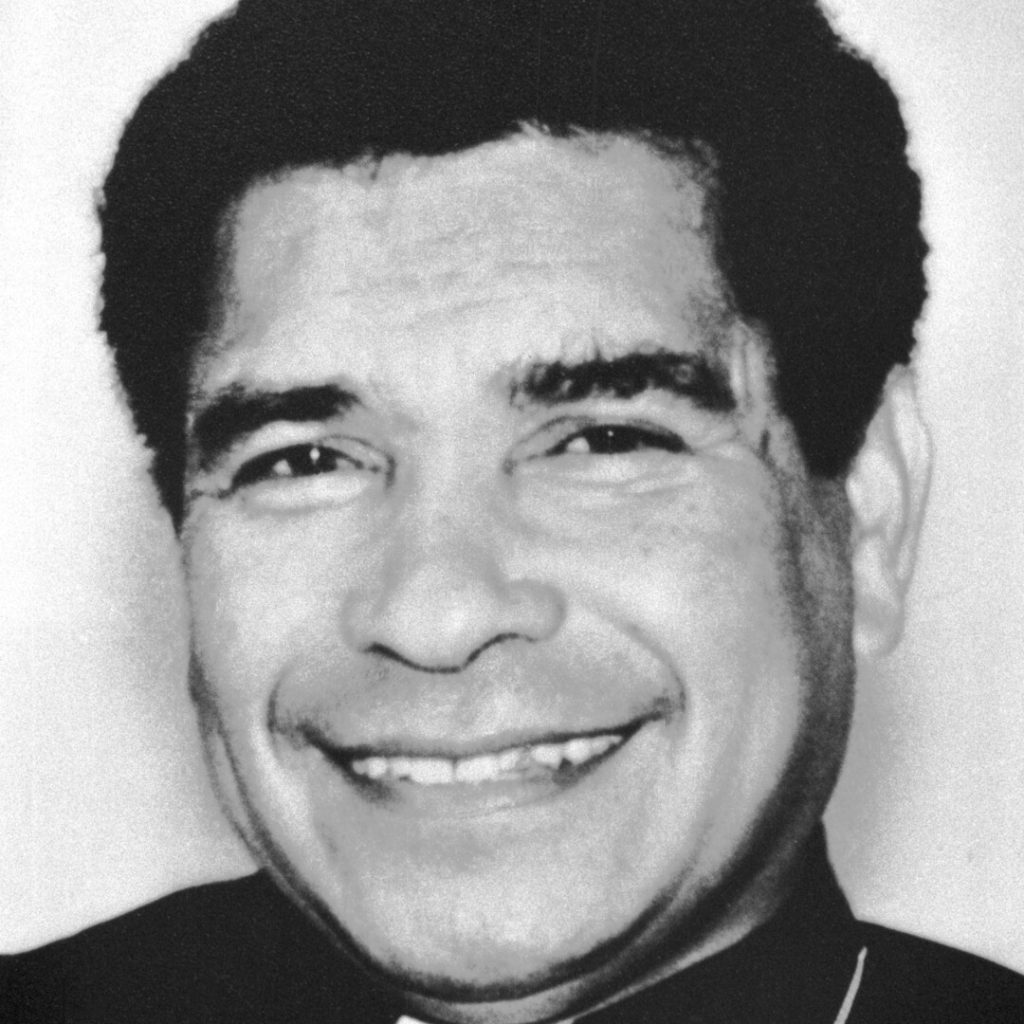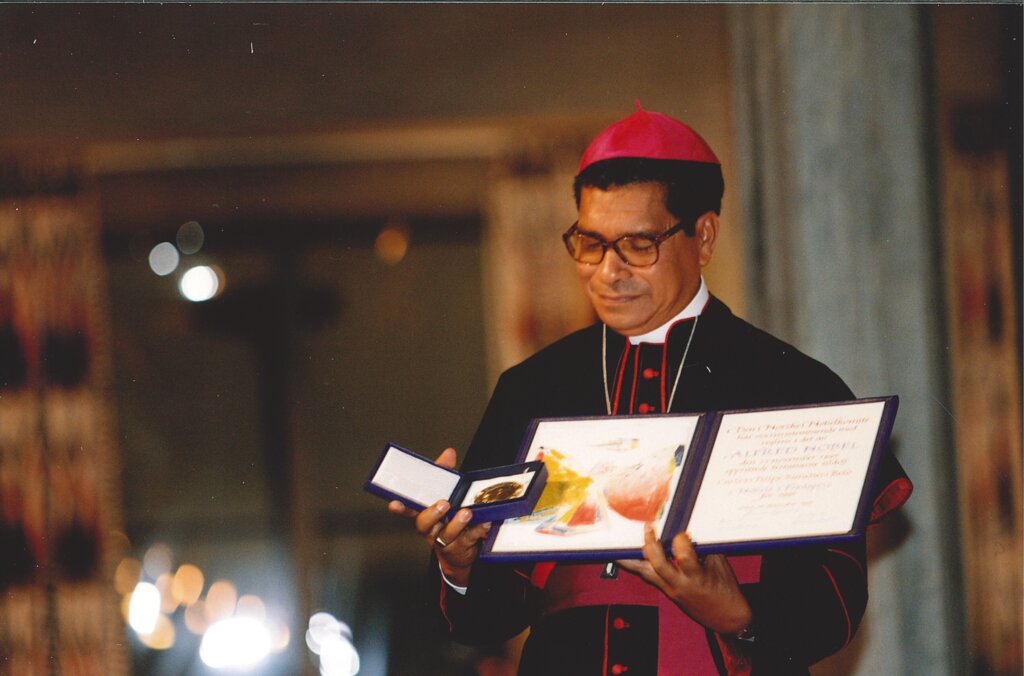Carlos Filipe Ximenes Belo
Speed read
Carlos Filipe Ximenes Belo was awarded the Nobel Peace Prize, jointly with José Ramos-Horta, for his work towards a just and peaceful solution to the conflict in East Timor.

Full name: Carlos Filipe Ximenes Belo
Born: 3 February 1948, Wailacama, East Timor
Date awarded: 11 October 1996
The courageous bishop of peace
Shortly after Carlos Belo was chosen as head of the Catholic Church in East Timor in 1983, he publicly condemned Indonesia’s brutal occupation of the province. The occupiers put Belo under strict surveillance and threatened his life several times, but the bishop refused to be silenced. He continued to promote non-violent opposition against the oppressors, and he conducted relief efforts for children orphaned by the war. Belo demanded that the UN organise a public referendum on the status of East Timor, and he helped to smuggle two witnesses to a meeting of the UN Commission on Human Rights, where they testified to human rights abuses by Indonesia. Bishop Belo viewed the Nobel Peace Prize as an acknowledgement of the Catholic Church’s fight for human rights.
| Human rights Rights that apply to all persons regardless of gender, race, ethnicity, religious affiliation or nationality. The most important are the rights enshrined in the UN Declaration of Human Rights, adopted in 1948. |
"Again and again, in the midst of everyday terror and suffering, he has intervened, trying to reconcile and mediate and lessen confrontation, and in doing so he has saved many lives."
Francis Sejersted, Presentation speech, 10 December 1996.

"But when a people chooses the non-violent path, it is all too often the case that hardly anyone pays attention. It is tragic that people have to suffer and die and the television cameras have to deliver the pictures to people’s homes everyday before the world at large admits there is a problem."
Carlos Belo, Nobel Prize lecture, 10 December 1996.
Inspiration from Portugal
In the early 1970s, Belo studied theology in Lisbon. A witness to the downfall of the Portuguese dictatorship, he could not help but be influenced by it. In an interview in autumn 1996, he said, “Suddenly I discovered democracy … The human rights violations would continue in the absence of democratic thought. Democracy will also be decisive for the future of East Timor. It is the Timorese people themselves who will decide whether East Timor will remain an Indonesian province or become a sovereign nation.”
Belo becomes a missionary
In November 2002, Carlos Belo resigned as bishop of East Timor due to illness. He did not allow his health problems to slow him down, however, seeking new challenges instead. Ever since being ordained as a priest, he had dreamed of becoming a missionary, and now he seised the opportunity. In 2004 he left his home country and began missionary work in Mozambique, Africa.
"The hope is that the Nobel Peace Prize will again help to prove that a nearly forgotten conflict doesn’t have to be a lost cause."
Newsweek, 21 October 1996.
Disclaimer: Every effort has been made by the publisher to credit organisations and individuals with regard to the supply of photographs. Please notify the publishers regarding corrections.
Nobel Prizes and laureates
Six prizes were awarded for achievements that have conferred the greatest benefit to humankind. The 14 laureates' work and discoveries range from quantum tunnelling to promoting democratic rights.
See them all presented here.
